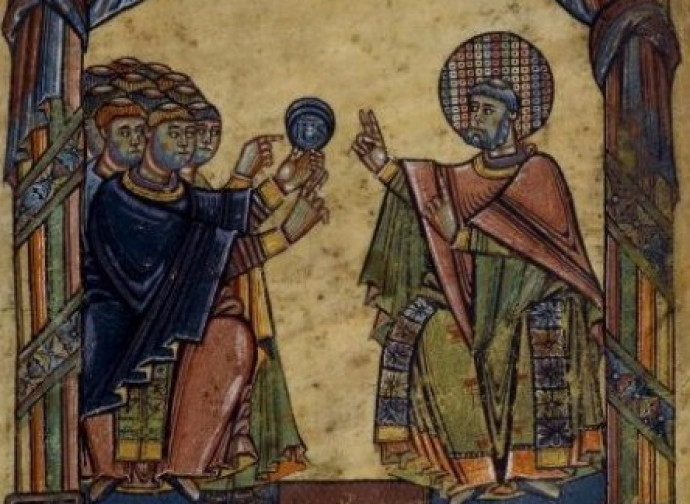Saint Albinus of Angers
Very popular during the Middle Ages, Saint Albinus of Angers (c. 468-550) was born into a noble family near Vannes in Brittany. Attracted to the life of the monks, he entered the monastery of a small Breton village and became its abbot in 504.

Very popular during the Middle Ages, Saint Albinus of Angers (c. 468-550) was born into a noble family near Vannes in Brittany. Attracted to the life of the monks, he entered the monastery of a small Breton village and became its abbot in 504. For 25 years he led the abbey in an exemplary manner, earning the admiration of the faithful, who elected him Bishop of Angers by popular acclamation and despite his resistance, in 529. As a pastor he proved to be attentive to the care of souls, denouncing in particular incestuous marriages. He participated in the Councils of Orleans in 538 and 541, held when France was already almost entirely governed by the Merovingian dynasty, whose first sovereign, Clovis (†511), had been baptized by Saint Remigius. The forceful moral appeals from Albinus met with opposition from some nobles and bishops, but the support of Saint Caesarius of Arles encouraged him to continue his work.
Word has it that Albinus did his utmost to help people in distress, for instance by ransoming prisoners taken hostage by pirates, or by casting out demons. He frequently visited prisoners and it is said that one day he went to visit a woman sent to jail by her creditors and who was ill-treated in prison. A soldier who refused to let him pass dropped dead at his feet. The saint then helped the woman to pay off her debts and she was freed. Albinus died in 550 in fame of sanctity. Among his very first hagiographers was Saint Venanzio Fortunato (530-607). His cult, already mentioned by Saint Gregory of Tours (c. 538-594), spread rapidly throughout France, where many churches bear his name, and extended mainly to Germany, England and Poland.
Patron of: bakers, confectioners; invoked against pirate attacks
